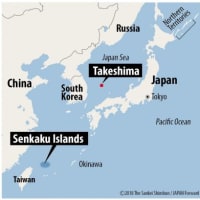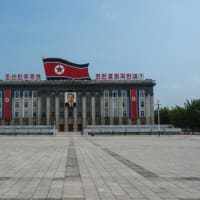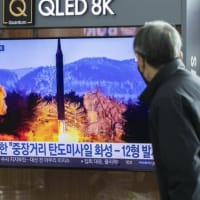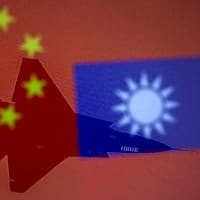Welcome to issues in Japan.
I would like to share the insights and analysis of Mr. Hosokawa, Masahiko, Professor at Meisei University and Former high-ranking official of the Ministry of Economy, Trade and Industry.
The title of his article carried in the Sankei Shimbun website posted on January 27 is:
What Problems Does the "Economic Security Law" Leave Behind?
The Economic Security Promotion Act (tentative name) will be submitted to the Diet this session as a symbol of the economic security, a key policy of the Fumio Kishida cabinet.
The contents of this bill have already been reported in the press, so I would like to point out some of the issues that remain to be resolved.
First, one of the pillars of the bill is to strengthen the supply network.
The government designates key commodities and provides financial support for companies to invest in domestic production infrastructure.
This is modeled after the 600 billion yen appropriated in the current fiscal year's supplementary budget for advanced semiconductors.
The key point is how to select the critical goods.
Of course, it is necessary to clarify the criteria and stop the easy spread of the support, but what is important is the reality that the United States, Europe, and China are using huge amounts of money to "enclose strategic industries."
If we do nothing, Japan's industries will be drawn in by their magnetic force and the country may be hollowed out.
Also, the main players in the supply chain are the companies that invest.
If the companies do not invest, it will be a "pie in the sky."
The bottleneck is the high cost of electricity, which is the operating cost.
The cost of electricity for industrial use is about 1.8 times higher than that of China and South Korea, and 2.4 times higher than that of the U.S., making it difficult for the semiconductor industry and other industries to maintain their competitiveness.
Germany has drastically reduced the burden of electricity for industrial use.
Japan, too, needs not only support for capital investment but also measures to reduce the cost of electricity, at least for the industrial infrastructure that is essential for economic security.
Furthermore, we cannot avoid the fundamental issue of nuclear power plants.
Second, let's not forget about data in economic security.
China's tightening of controls and the National Intelligence Act, which gives the state access to data, also pose risks to the data supply chain.
The data that supports the digital society is the key to economic security.
In addition to semiconductors and pharmaceuticals, for which the Covid-19 pandemic has exposed risks, we need to strengthen our industrial infrastructure, including data centers, by treating data as a "critical commodity."
We are also faced with the challenge of "protecting" data.
Under the bill, the government will conduct a pre-implementation review of the safety and reliability of key infrastructure providers, such as telecommunications and electric power companies, with an eye to cyber-attacks and unauthorized access to their critical facilities.
It is important for the government to indicate the red line in terms of economic security.
Of course, the regulatory targets should be limited, but the data flowing over the core infrastructure does not seem to be adequately protected by the bill.
In the case of the problem involving the communication app "LINE", which was discovered last year, the user data was accessible by a contractor in China and could be used as a tool for intimidation.
The Ministry of Public Management, Home Affairs, Posts and Telecommunications is trying to deal with this issue by amending the Telecommunications Business Law, but it seems to be watered down due to the opposition from the companies against the regulation.
This hesitation is not only due to the lack of security awareness of the companies themselves, but also because the government itself has not yet settled down.
It will be a test of the sense of economic security in the public and private sectors.
The third is to establish a 250-billion-yen fund to support research and development of advanced technologies such as artificial intelligence (AI) and quantum technology, with a future goal of 500 billion yen.
In the background, there is a serious problem in Japan.
In many countries, research and development of such advanced technologies is funded by huge defense budgets.
However, Japan's Ministry of Defense spends only about 5% of the national budget on R&D, and Japanese academia has a deeply ingrained allergy to the military.
Therefore we are tackling the issue of economic security from a new angle.
The essence of this system is to aim for implementation in the field of security, such as defense, and it is essential to have a system that allows researchers to understand the needs of the field.
The policy is to establish a think tank to conduct research and analysis for selecting themes, but we must not lose sight of this essential point.
However, the think tank's objective is to "realize safety and reassurance," and it deliberately avoids using the word "security."
It is as if they are afraid of the backlash from academia, with great caution, like "touching the boils."
What is lacking is an attitude that confronts security head-on.
In addition, the U.S. and China dominate the field of advanced technology, investing huge amounts of money and human resources.
With its limited resources, Japan needs to identify and concentrate its investment in technologies that can become choke points.
Joint research with the US is essential.
In this case, confidentiality is important, and it is an international standard to require private researchers to protect information with penalties.
In addition, there are many other important economic and security issues left to be resolved.
At the recent Japan-U.S. summit, an economic version of the "two plus two" agreement was reached, and the two countries will work together on economic and security issues.
The Indo-Pacific region and the Quad by Japan, the U.S., Australia, and India are all well and good, but judging from the dysfunction of the Biden administration, I wonder if the "reality" will accompany it.
We should be careful not to allow Japan to unilaterally "take out" industries and technologies.
In this way, economic security needs to be addressed not only from the perspective of legislation, but also from multiple perspectives, including energy, data, and trade.
That’s all for now.
Thank you for your visit.



















